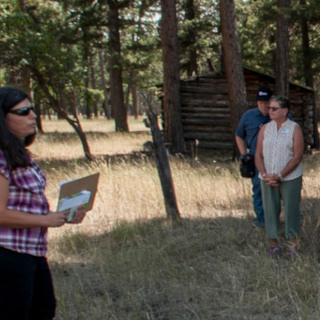Comparative Advantages
The Center for Natural Resources and Envrionmental Policy is designed to bridge the gap between two common types of centers affiliated with universities: those that focus on natural resource and environmental law and policy, and those that focus on dispute resolution and consensus building.
Our mission statement – to shape policy for people and nature – compels us to embrace the best of both worlds. We focus on natural resources and environmental policy by bringing together citizens and leaders with diverse viewpoints. We help them understand the issues, examine the options, and seek solutions that integrate as many interests as possible.
According to a study completed by the University of Colorado in 2004, there are 45 organizations based at universities across the country that focus on natural resource and environmental law and policy. Of these, 19 (42%) are located at western universities, including:
- Andrus Center for Public Policy, Boise State University
- Center for Sustainable Environments, Northern Arizona University
- Center for the Rocky Mountain West, University of Montana
- Institute for Environment and Natural Resources, University of Wyoming
- Institute for a Sustainable Environment, University of Oregon
- Kitzhaber Center, Lewis and Clark College
- Natural Resources Law Center, University of Colorado
- Natural Resources Law Institute, Lewis and Clark College
- Utton Transboundary Resources Center, University of New Mexico
- Udall Center for Studies in Public Policy, University of Arizona
- Wallace Stegner Center for Land, Resources and the Environment, University of Utah
Many of these centers and institutes are embedded within law schools, and focus on legal issues related to natural resources and the environment. Others, as their names suggest, focus on issues related to sustainability. The majority of these policy centers and institutes describe themselves as interdisciplinary, working in partnerships, and solution-oriented.
A similar study recently completed by the Policy Consensus Institute concludes that there are 60-plus centers based at universities across the country that focus on consensus building and dispute resolution, including:
- Center for Collaborative Policy, California State University-Sacramento
- Center for Public Policy Dispute Resolution, the University of Texas
- Center for Research in Conflict Negotiation, Pennsylvania State University
- Common Ground: Center for Cooperative Solutions, University of California-Davis
- Conflict Resolution Center, University of North Dakota
- Florida Conflict Resolution Consortium, Florida State University
- Indiana Conflict Resolution Institute, Indiana University
- Institute for Environmental Negotiation, the University of Virginia
- Massachusetts Office of Dispute Resolution, University of Massachusetts
- MIT-Harvard Public Disputes Program
- Oregon Consensus Program, Portland State University
- Policy Consensus Center, University of Washington and Washington State University
- Program on Conflict Resolution, University of Hawaii
- The Program on Negotiation and Conflict Resolution, New York University
Many of these programs specialize in process design and facilitation, rather than focusing on any particular issue. Many provide facilitation services for state agencies and legislative bodies. Fewer than a dozen of these programs are located in the West.
Throughout the country, there are also a number of “public policy institutes” located at public and private universities. These institutes address a variety of public policy issues through research, education, and outreach activities. Given its mission and current portfolio of activities, CNREP focuses on a more limited scope of public policy issues than many of these other institutes.
